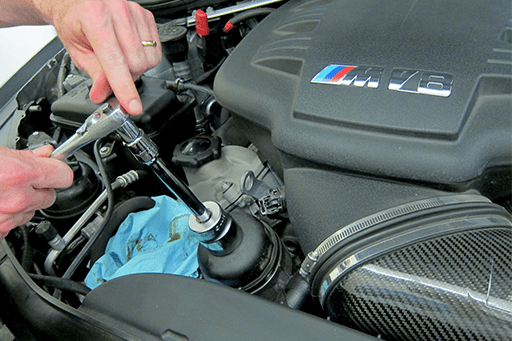OIL CHANGE?

Are you taking your oil change for granted?
When booking your car in for a service the thing that most people take for granted is that it includes an engine oil and filter change. But apart from the fact that all manufacturers recommend an oil and filter change at various intervals do you really understand why it’s necessary?
The reason I ask is that most people’s answer to the question is usually based around the oil getting dirty or “worn out” after a certain amount of usage. This usually leads us to believe that our oil only needs to be changed every 10,000 or 15,000kms, especially owners of late model vehicles who see recommended service intervals of up to 20,000 kms. Not knowing all the facts can damage your car’s engine and result in much unnecessary expense.
The reason I ask is that most people’s answer to the question is usually based around the oil getting dirty or “worn out” after a certain amount of usage. This usually leads us to believe that our oil only needs to be changed every 10,000 or 15,000kms, especially owners of late model vehicles who see recommended service intervals of up to 20,000 kms. Not knowing all the facts can damage your car’s engine and result in much unnecessary expense.

So here is an alternative perspective to the “one size fits all” recommendation provided by some manufacturers.
Driving habits greatly affect the life of the engine oil and consequently, the engine.
If your vehicle travels less than 20 kilometres per trip for more than half its journeys (which has been more common during the pandemic), you should have the oil changed every 5,000 – 7,000kms.It is estimated (even before the recent pandemic) that 80% of vehicles fall into this category with short trips to work, to the station, to school or to the shopping centre. This creates a greater risk of increased engine wear and damage compared to a car that travels long enough to vaporise the potentially damaging contaminants.
Water vapour, unburnt petrol and blow-by gases from the combustion process overload the oil which combine to produce sludge deposits. It takes about 20 kilometres from a cold start to fully warm up the engine oil and reduce the rate of oil contamination.
This does not work effectively in engines that don’t travel further than 20 kilometres after each cold start. The oil can become saturated with contaminants regardless of how good the oil is (synthetic, semi-synthetic or mineral). Also, oil thick with deposits can’t reach the moving parts effectively when the engine is first started (where most damage occurs). The oil is less effective at lubrication, accelerating wear and leakage. In addition, most modern engines have reduced oil capacities, some as low as 3.5 litres (including oil filter), causing the oil to be under a lot more stress – particularly as the oil approaches the end of its effective service life.

Other abnormal conditions that reduce oil change intervals include dusty or unsealed roads, heavy loads, and long periods at high speeds.
Just topping up an engine which is low on oil with fresh oil is not the same as giving it a proper oil change (which should also use a modern flushing product to remove sludge causing deposits). Contaminants left behind increase in concentration each time the oil level drops, accelerating engine wear.
So, think about protecting your investment by taking the time to consider whether your car fits into less than 20kms per trip or any other abnormal driving conditions you may have and how they may affect the oil, even between regular service periods.
If you doubt this perspective, consider this, Taxi owners usually have an oil change done every 3 months to get maximum life out of their engine. This can keep their engine going for as long as 500,000 km or more while the rest of us get around 300,000km due to much less frequent oil changes.
Please note that an “oil change” should be just part of a regular “service”. Most services should include an oil change as well as a comprehensive “inspection checklist” covering the whole vehicle.
Just topping up an engine which is low on oil with fresh oil is not the same as giving it a proper oil change (which should also use a modern flushing product to remove sludge causing deposits). Contaminants left behind increase in concentration each time the oil level drops, accelerating engine wear.
So, think about protecting your investment by taking the time to consider whether your car fits into less than 20kms per trip or any other abnormal driving conditions you may have and how they may affect the oil, even between regular service periods.
If you doubt this perspective, consider this, Taxi owners usually have an oil change done every 3 months to get maximum life out of their engine. This can keep their engine going for as long as 500,000 km or more while the rest of us get around 300,000km due to much less frequent oil changes.
Please note that an “oil change” should be just part of a regular “service”. Most services should include an oil change as well as a comprehensive “inspection checklist” covering the whole vehicle.
send us a message
INSTAGRAM




